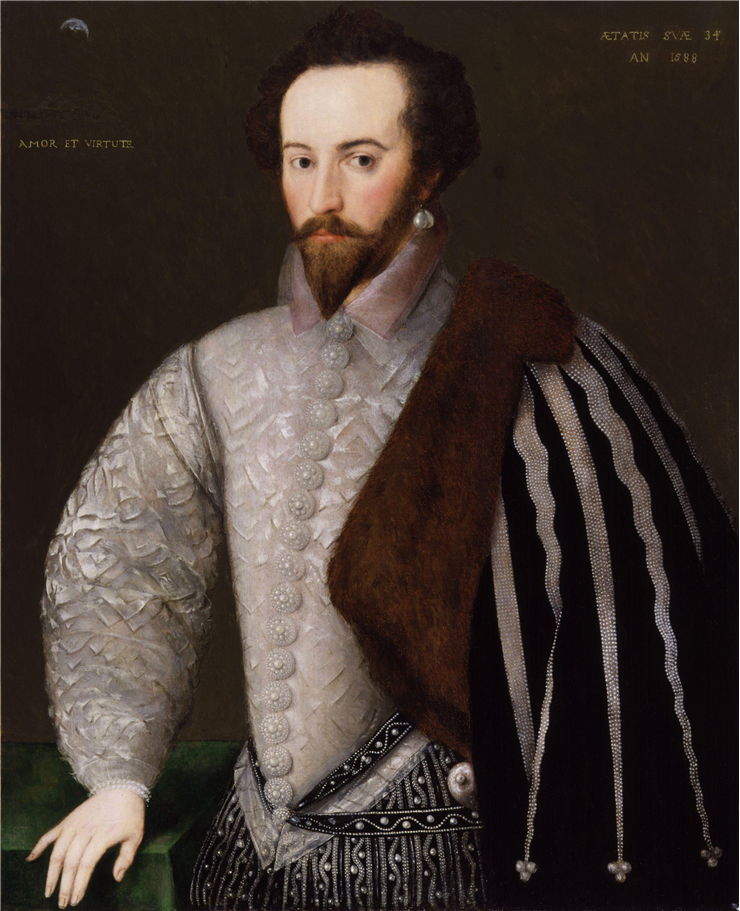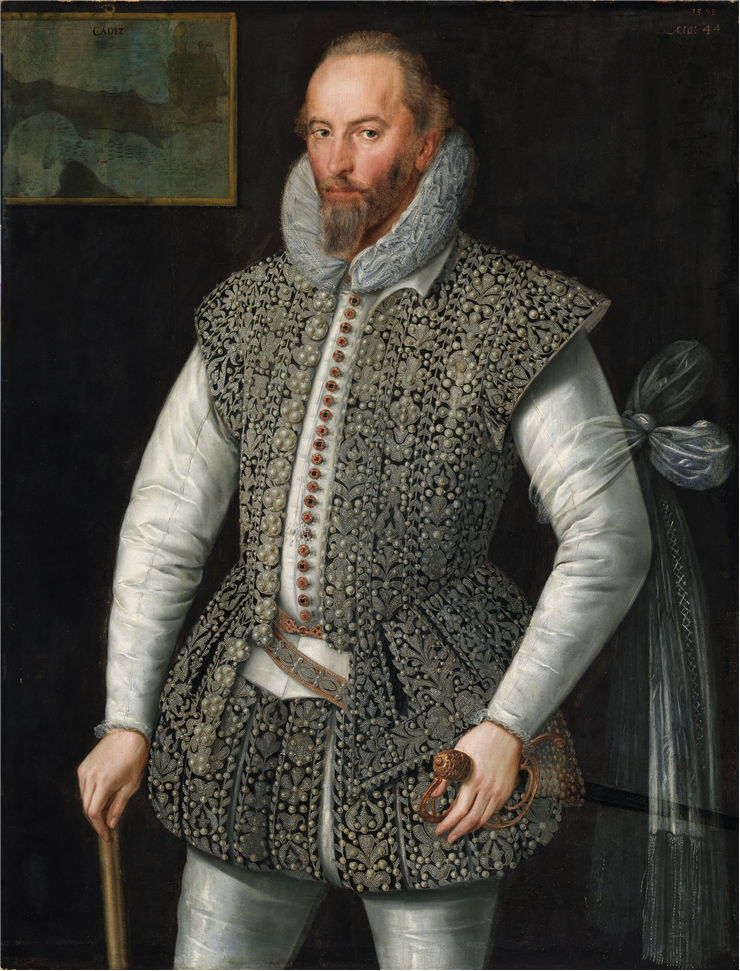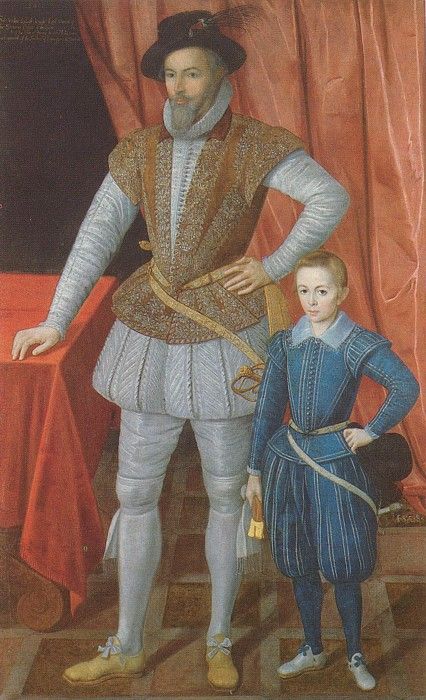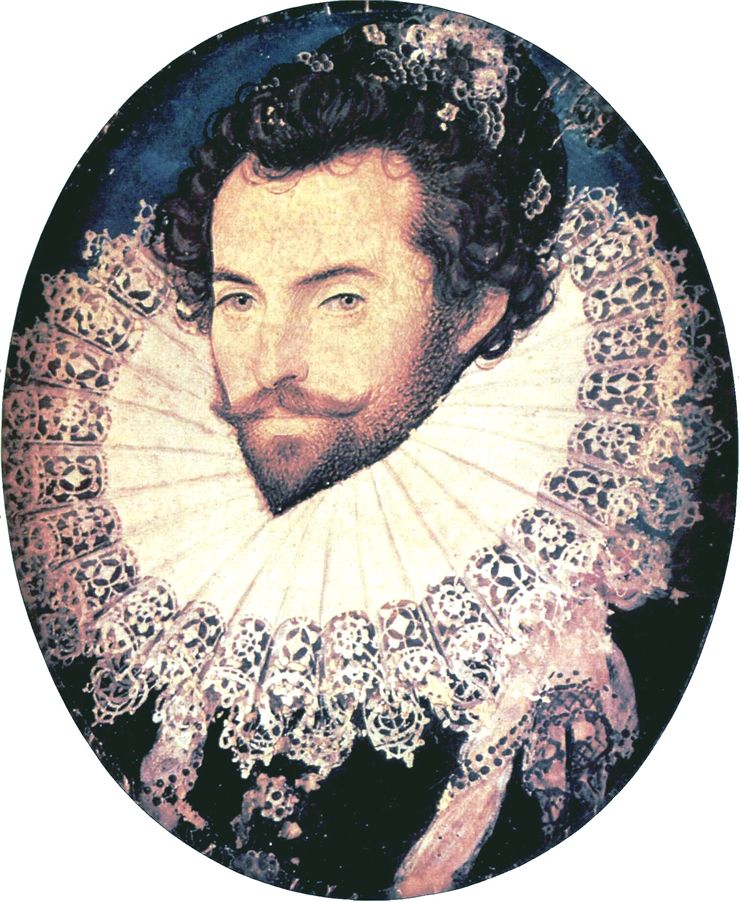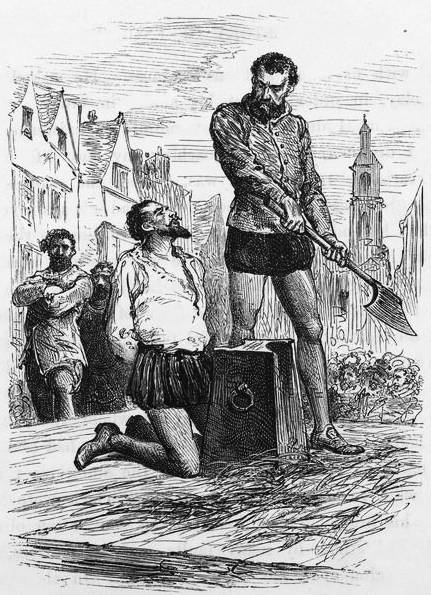Sir Walter Raleigh Biography
Sir Walter Raleigh (1554-1618) was English aristocrat and explorer that is today best remembered for his journey to the South America where he searched for the legendary lost city of gold - El Dorado. His exploits greatly popularized both the myths of this ancient city and the European usage of the South American plant called tobacco. During his life he made threefamous journeys across Atlantic - once as a leader of the private owned fleet of ships that colonized the lands of North America (today located across Virginia and North Carolina), and two times as a leader of the expedition fleet in South America.
Walter Raleigh was born in in Devon, England, as a son of Walter Raleigh and Catherine Champernowne. He first became known already as a grown man after the successful suppression of rebellion in the Ireland and the Siege of Smerwick. By that time he became land owner who quickly rose through the ranks of English nobility with the help of the Queen Elizabeth I. With the help of the royal patent, Raleigh successfully led the privately owned colonization fleet to the shores of the North America where they settled on the lands of Virginia. For that successful mission English crown knighted him in 1985, and gave him several notable holdings and positions (such as warden of the mines of Cornwall and Devon, Lord Lieutenant of Cornwall, Vice-Admiral, and a member of the British parliament in 1585 and 1586). Almost all of that came to end in 1591 after he married one of her personal ladies in waiting without permission, thus breaking the Queen's law.
In 1594, tree years after his imprisonment in the Tower of London for defying the Crown with his wedding, he came to the information that South American river of Caroní is hiding the remains of the ancient city that was made from gold. Emboldened by his research, he quickly formed the exploratory fleet and in the same year sailed across the Atlantic. Although Raleigh never found not a single concrete shred of evidence of the city's existence, his return to England was quickly followed with the publication of the book "The Discovery of Guiana" in which he greatly exaggerated the events that happened during his journey. Even after many of the claims in the book were proven to be false, "The Discovery of Guiana" played a very important role in the popularization of the myth of the El Dorado.
After this unsuccessful journey, Sir Walter Raleigh continued to serve English crown. He was a part in the 1956s capture of Spanish city Cádiz, and the movement of the English fleets against the Portuguese forces in the Azores in 1957. Events of those few years repaired his relations to the English crown, and he quickly returned to the political life. After serving as a parliament for Dorset, Governor of the Channel Island of Jersey, Raleigh was again arrested after the accusations of his involvement in the Main Plot against King James in 1603. He masterfully defended himself during the trial, and managed to win his freedom in 1616, the same year he departed for the South America for the second time. His second journey again proved to be unsuccessful, and during the expedition his forces managed to ransack Spanish outpost town of San Tomé on the Orinoco River. This attack proved to be fatal for Sir Walter Raleigh. His son died during the battle with the Spanish, and Raleigh himself received similar fate after his return to England after Spanish ambassador Count Gondomar successfully demanded for his death sentence.
Sir Walter Raleigh was executed by decapitation in the Old Palace Yard at the Palace of Westminster on 29 October 1618. Many of the present nobility and citizens had good relation to Raleigh, and regarded his death as unnecessary and unjust.
| Name | Walter Raleigh |
| Born | 1554 |
| Place of Birth | Hayes Barton, East Budleigh, Devon, England |
| Died | 29 October 1618 |
| Place of Death | London, England |
| Category (Occupation/Profession) | Writer, poet, soldier, courtier, explorer |
| Nationality | English |
| Religion | Protestant |
| Known For | Search for El Dorado |
| Spouse(s) | Elizabeth Throckmorton |
| Children | Walter (Wat), Carew |
| Parent(s) | Walter Raleigh, Catherine Champernowne |
| Relative(s) | Richard Grenville, Humphrey Gilbert |
| Monuments | Raleigh, North Carolina |
